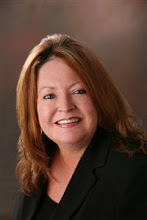Waiting game on low mortgage rates backfires
By Mark Glover mglover@sacbee.com
http://www.sacbee.com/business/story/1903523.html
Sacramento-area homeowners and prospective first-time homebuyers might be wondering: Did we miss the boat on mortgage rates?
The short answer from experts is: Probably, but rates are still very attractive.
For 10 weeks, mortgage rates were riding well below 5 percent on 30-year loans, but housing and industry analysts speculated that many first-time homebuyers and homeowners looking to refinance existing mortgages were waiting for rates to drop even lower.
Then on Wednesday, rates went the other way.
Mortgage rates at some lenders spiked anywhere from 0.5 percent to 1 percent, and industry analysts pointed to economic indicators favorable to even higher rates in the coming weeks.
Rates on 30-year, fixed-rate mortgages averaged 4.91 percent this week, according to the Sacramento Association of Realtors. Some lenders' rates spilled into the 5-percent-plus ballpark.
For those who were waiting for rates to go lower and others who had yet to lock in rates, the window of opportunity may have closed, experts said. They added the market is still relatively good.
"Did they miss it? Well, I think they did in the short term," said Mike Lyon, head of Sacramento-based Lyon Real Estate. "The good news is it's still cheap. For most people, I would say, 'Let's not get greedy.'
"Rates are still good. For decades, we were in the 10-percent-plus range. Prices are still soft. This is not the time to lose hope, but to be a little more vigilant. Maybe this was a wake-up call for people who were waiting."
Still, Lyon said the rate spike will have its effect – probably on 5 percent to 10 percent of escrows in the local market.
"I think the initial problem is for those who did not lock in, and thinking (rates) would go lower was really extremely optimistic," he said. "A lot of people who are first-time homebuyers are now going to think about the price. It reduces their buying power."
Andrew LePage, an analyst with researcher MDA DataQuick, speculated that this week's rise in mortgage rates might have a more limited effect on the local market.
"Anything under 5 percent is really good, period," he said. "I'd guess that (borrowers) who might affected by this are at the margins.
"There are other factors. Lenders are being very picky, home prices are still in flux. Prices are temporarily firm in some areas. (Rates aren't) the only factor, and nobody can predict mortgage rates, because there are so many factors."
Lyon agreed that predicting the long-range course of mortgage rates requires a crystal ball, but he said demand for refinancing remains high. He said mortgage rates will continue to be affected by numerous economic factors, including overseas bond buying and the finite number of bonds that can be purchased in the market.
Keith Springer, president of Capital Financial Advisory Services in Sacramento, agreed, noting that the recent rally in the U.S. stock market also has applied pressure for increased rates.
"(Borrowers) probably have missed the boat on the lower rates," Springer said. "If they skipped 4.5 (percent) or 4.75 (percent), we're probably not going to see that again for maybe a couple years.
"The good news is that they're probably not going to raise the prime rate soon, and that's tied to the adjustable (rates). … People shouldn't be scared, because even 5.5 percent is a good rate."
Springer added that heavy borrowing by the U.S. government will be critical in determining rates over the months ahead. That was echoed this week by Federal Reserve Chairman Ben Bernanke, who said mortgage-rate increases are linked to concerns that enormous federal borrowing will decrease the value of government-backed assets.
The 30-year fixed mortgage rate was at a record low of 4.78 percent in April, which analysts linked to the Fed buying more than $1 trillion in mortgage securities and $300 billion in Treasury notes. Some analysts hope the Fed will continue to take aggressive steps, saying that U.S. economic recovery depends heavily on free-flowing credit and a stabilized housing market.
The same analysts point out that homeowners who refinance their mortgages tend to spend their extra cash more freely on goods and services, providing an overall lift to the economy.
The downside of more Fed action is that increased yields on Treasury notes tend to drive mortgage rates higher. Another potential downside of buying more Treasury notes is that it creates inflation.
Subscribe to:
Post Comments (Atom)

No comments:
Post a Comment